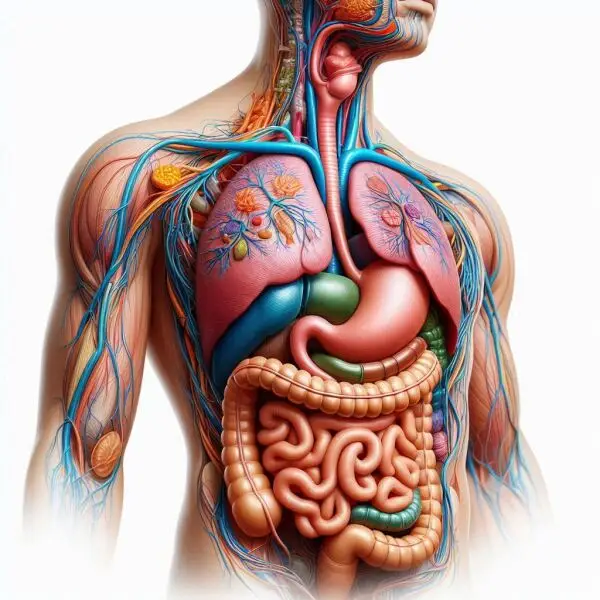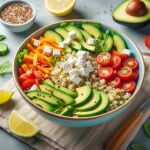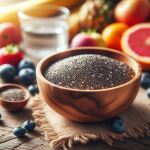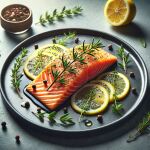Colon cancer diagnosis is increasing in young people: ultra-processed foods under suspicion
Colon cancer is increasing in people under 50: diet and ultra-processed foods under scrutiny. Experts warn: current habits increase the risk....
Table of Contents
- Under 50: why are diagnoses increasing?
- Habits working against us
- Signs you should not ignore and screenings that save lives
- Small decisions, big difference
Follow Patricia Alegsa on Pinterest!
Under 50: why are diagnoses increasing?
I'll tell you straight: more and more young adults are receiving diagnoses that we used to see mostly after age 60. Colorectal cancer leads this trend. It's not just a feeling. Global analyses have shown sustained increases in cases among 25 to 49-year-olds in dozens of countries. In some, rates reached up to 16 or 17 per 100,000 inhabitants in the last decade. At the same time, rates in older adults have plateaued or decreased. Curious and worrying.
As a nutritionist and psychologist, I see this every month in my practice. Young people with tight schedules, rushed meals, and zero time to move. Biology doesn’t negotiate. The gut pays the price.
Genetics explains little in this phenomenon. Approximately 3 out of 4 diagnoses in young people have no family history. Environment and habits push strongly. And yes, it hurts to say it because it hits our plate, the couch, and the soda glass 🍟🥤🛋️
Cases of cancer in young patients are increasing: what is happening?
Habits working against us
The modern Western diet puts ultra-processed foods front and center. Lots of additives, sugars and refined flours, poor-quality fats, little fiber, and phytochemicals. This combination alters the microbiota, promotes low-grade inflammation, and weakens the gut’s defenses. In simple terms: we take away the colon’s shields.
A large follow-up study published in 2022 found that those who eat more ultra-processed foods increase their risk of colorectal cancer by almost 30%, even after adjusting for weight. And watch this: the risk also appears in thin and active people. Food quality matters more than your mirror tells you.
More pieces of the puzzle:
- Excess processed meat raises risk. Guidelines limit it to a few servings per week and prioritize legumes, fish, and poultry.
- Alcohol adds points to the risk score. The safest bet: none. If you drink, keep it little and not every day.
- Sedentary lifestyle and insulin resistance open the door to unwanted cell growth signals.
- Antibiotics in childhood, used for prolonged periods, can durably alter gut flora. Their impact is still being studied, but the clue is on the table.
- Emulsifiers and sweeteners affect microbiota in animal models. Increasing data show their role in inflammation.
As I often say in my talks: your microbiota is a garden. If you water it with fiber, colorful vegetables, and real food, it blooms. If you pour sodas, ultra-processed foods, and sleepless nights on it, it fills with weeds 🥦🌿
Food for thought. Incidence in young people grows up to 4% annually in some countries. And the global volume is impressive: more than 1.9 million new colorectal cancer cases in 2022. We cannot look the other way.
Signs you should not ignore and screenings that save lives
In young people, symptoms are often minimized. “Stress,” “hemorrhoids,” “something I ate.” That delay complicates things. If you notice any of these signs for more than two or three weeks, consult a doctor:
- Rectal bleeding or blood in stool
- Changes in bowel habits (new diarrhea or constipation)
- Persistent abdominal pain or cramps
- Iron-deficiency anemia, unexplained fatigue
- Unexplained weight loss
- Annual fecal immunochemical test (FIT). Easy, non-invasive
- Colonoscopy every 10 years if normal; earlier and more frequently if at risk
- CT colonography or sigmoidoscopy in specific scenarios
- Rule of 3F: Fresh, Fiber, Fermentable. Fruits, vegetables, legumes, whole grains, nuts; and fermented foods like natural yogurt or kefir
- Goal of 30 g fiber daily. Simple path: 1 fruit + 1 large salad + 1 plate of legumes or whole grains every day
- Meat traffic light: green (fish, legumes), yellow (poultry), red (processed). Processed meats better rarely
- Ultra-processed foods out of routine. Use them as occasional “crutches,” not as diet base
- Sugar and sodas: cut by half now, then half of that half in a month. Your palate adapts
- Movement as habit: 150 to 300 minutes weekly + strength twice a week. Break sedentary time every 60 minutes. A couple of squats count 💪
- Alcohol: less is better. Alcohol-free days each week. Water and unsweetened coffee as default
- Sleep 7 to 8 hours. Chronic sleeplessness alters appetite hormones and inflammation. Your colon sleeps too
- Vitamin D and iron in check. Evaluate with your doctor if you have risk factors
- Screening plan in writing. Date, reminder, test name. If you schedule it, it happens 🗓️
- Breakfast: natural yogurt with oats, berries, and nuts
- Lunch: bowl of chickpeas, quinoa, roasted vegetables, olive oil
- Snack: apple + fresh cheese or hummus with carrots
- Dinner: baked fish, pumpkin puree, green salad
- Are you 45 or older and haven’t had your first test or colonoscopy yet?
- Do you notice blood or changes in your bowel habits?
- Do you eat fiber every day?
- Did you move at least 30 minutes today?
- Which ultra-processed food can you replace this week with a real option?
Life-saving tools:
Many countries now recommend starting screening at 45. If you have family history, previous polyps, or inflammatory bowel disease, start earlier with a personalized plan. Sad statistic: less than 30% of the target population gets timely screening. We can do better.
I’ll share an anecdote that still moves me. M., 34 years old, programmer, ran 10 km on Sundays. Intermittent bleeding for nine months with “surely hemorrhoids.” I insisted during consultation: colonoscopy. Result: early tumor. Surgery, treatment, normal life today. He wrote me recently: “Thanks for insisting.” I replied: “Your future insisted” 🧡
Small decisions, big difference
You don’t need a monastic life. You need consistency. Here’s what I see works in patients and workshops.
Small “anti-inflammatory” menu for a busy day:
And a psychological trick. Don’t forbid yourself everything. Shift the problem elsewhere. If you don’t buy the ultra-processed food, the couch won’t eat it for you. Whatever you choose, you choose for your “self” ten years from now.
I’ll close with quick questions for you:
If you answered “no” to any, you have an opportunity. Schedule your check-up, make your shopping list, walk 10 minutes now. Your colon loves simple repeated decisions. So do I because I see how stories change 😊
Subscribe to the free weekly horoscope
Aquarius Aries Cancer Capricorn Gemini Leo Libra Pisces Sagittarius Scorpio Taurus Virgo
-
 Quinoa, a cereal that is a superfood for your health
Quinoa, a cereal that is a superfood for your health
Discover a cereal with an exceptional nutritional profile and multiple health benefits. Incorporate energy and wellness into your diet! -
 Olives to the Rescue! Green vs Black: Which Are Better?
Olives to the Rescue! Green vs Black: Which Are Better?
Olives: the Mediterranean superfood. Green or black? Both take care of your heart, strengthen your immune system, and combat inflammation. -
 Best times to consume foods that care for your heart and digestion
Best times to consume foods that care for your heart and digestion
Discover how including them in your diet improves cardiovascular health. Learn the best time to consume them and prevent constipation. Get informed now! -
 How to Transform Your Home: The 5 Keys of Vastu Shastra, the Hindu Feng Shui
How to Transform Your Home: The 5 Keys of Vastu Shastra, the Hindu Feng Shui
Discover how to harmonize your home with the 5 keys of Vastu Shastra, the 'Hindu Feng Shui.' Activate positive energy using the elements and their symbolism. -
 Benefits of chia seeds: how many should I consume per day?
Benefits of chia seeds: how many should I consume per day?
Discover the incredible benefits of chia seeds for your health and learn how many to consume daily to take advantage of their fiber, omega-3, and essential minerals.
I am Patricia Alegsa
I have been writing horoscope and self-help articles professionally for over 20 years.
Subscribe to the free weekly horoscope
Receive weekly in your email the horoscope and our new articles on love, family, work, dreams and more news. We do NOT send spam.
Astral and numerological analysis
-
 Discover your future, secret personality traits and how to improve in love, business and life in general
Discover your future, secret personality traits and how to improve in love, business and life in general
-
 Online Dream Interpreter: with artificial intelligence
Do you want to know what a dream you had means? Discover the power of understanding your dreams with our advanced online dream interpreter using artificial intelligence that responds to you in seconds.
Online Dream Interpreter: with artificial intelligence
Do you want to know what a dream you had means? Discover the power of understanding your dreams with our advanced online dream interpreter using artificial intelligence that responds to you in seconds.
-
 Omega-3: The Unexpected Ally Against Prostate Cancer
Omega-3: The Unexpected Ally Against Prostate Cancer
Omega-3 to the Rescue! Incorporating fish into your diet could slow down prostate cancer. A small change with a big impact. -
 Atrial Fibrillation: Detect It in Time and Reduce the Risk of Stroke
Atrial Fibrillation: Detect It in Time and Reduce the Risk of Stroke
Discover how to timely detect atrial fibrillation, a dangerous arrhythmia. Learn about the innovative technology to monitor your heart from home. -
 10 Deceptive Foods: Healthy at First Glance, Ultra-processed in Reality
10 Deceptive Foods: Healthy at First Glance, Ultra-processed in Reality
Discover the 10 ultra-processed foods that seem healthy and their impact on your health, according to a recent study. Take care of your well-being and make better choices! -
 Spring Astenia? Discover how to manage its impact on your mood
Spring Astenia? Discover how to manage its impact on your mood
Spring Astenia: discover how the change of season impacts your energy and mood. Learn to recognize and manage its effects. -
 The ideal amount of physical activity for children: how much is a lot?
The ideal amount of physical activity for children: how much is a lot?
Discover the importance of physical activity in children and how much time they should exercise according to their age for healthy development. -
 Fatty liver? Discover how to prevent and reverse it in time
Fatty liver? Discover how to prevent and reverse it in time
Discover how to prevent non-alcoholic fatty liver disease, a condition that affects nearly 4 out of 10 people. Detecting it in time can save your liver! -
 How to Rest Our Brain from Social Media
How to Rest Our Brain from Social Media
Give Your Brain a Break: Disconnect from Social Media and Combat Neurochemical Imbalance for Lasting Well-being Without Relying on Technology. -
 Did you know that alcohol increases the risk of cancer by 40%?
Did you know that alcohol increases the risk of cancer by 40%?
Be careful with that drink! 40% of cancer cases in the U.S. are linked to alcohol. Discover how its consumption increases the risk of six types of tumors. -
 What does it mean to dream of pets?
What does it mean to dream of pets?
Discover the meaning behind your pet dreams in this fascinating article. Learn how to interpret your dreams and better understand your emotions. -
 Cancer, Leo, Virgo and Libra: the most generous signs of the zodiac
Cancer, Leo, Virgo and Libra: the most generous signs of the zodiac
Discover the most generous and selfless zodiac signs, ready to give without expecting anything in return. -
 What does it mean to dream of lights?
What does it mean to dream of lights?
Discover the meaning of your dreams with lights: do they represent hope or sadness? Find the answer in our article! -
 Goodbye Wrinkles and Gray Hair! Natural Hormones Challenge Aging
Goodbye Wrinkles and Gray Hair! Natural Hormones Challenge Aging
Wrinkles and gray hair? Goodbye! Scientists discover natural hormones that slow down aging. Anti-aging revolution in sight! -
 Chris Evans, sexier than ever at 43 years old
Chris Evans, sexier than ever at 43 years old
Let's talk about Chris Evans! This man has not only conquered our screens but has also stolen many hearts.